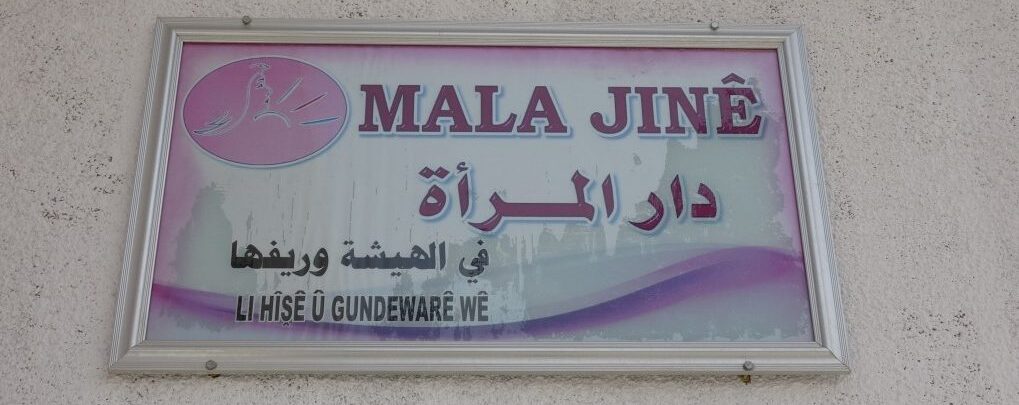Women Defend Rojava interviewed Naima Mehmud, co-chair of the Mala Jin (Women’s House) in the canton of Heseke. They talked with her about the work of Mala Jin and how it is influenced by the current Turkish state’s invasion and war and the recent Covid-19 pandemic.
The Women’s House (Mala Jin), is one of the people’ s institutions that were built from 2011 with the outbreak of the revolution. They are part of the Women’s Movement, organised under the umbrella of Kongra Star, and are established throughout the region of North and East Syria, as one of the pillars of the community-based institutions that represent the Autonomous Administration of North and East Syria.
Their role is to support women in solving the problems that affect them, and to take part through the Consensus Committees in the management of gender-based conflicts. In the project of Mala Jin we see two of the principles of the Revolution crystallized: ending the oppression of women and understanding, addressing and resolving conflicts within the community. The problems women face include husbands who have taken second wives, forced marriages, issues of inheritance, or male violence. Because despite the legislative changes that have been taken (such as banning polygamy or raising the legal age of marriage to 18), these continue to occur and it is a long-term educational effort to eradicate them completely.
As a house of justice, Mala Jin takes on a mediating role, holding talks with the affected parts when possible – a couple, a family, two or three families or tribes – and seeking a solution together. Even so, in serious cases of male violence or conflicts that are not settled, they are working together with Asayiş (police force) and the court justice system, taking punitive measures if necessary.

